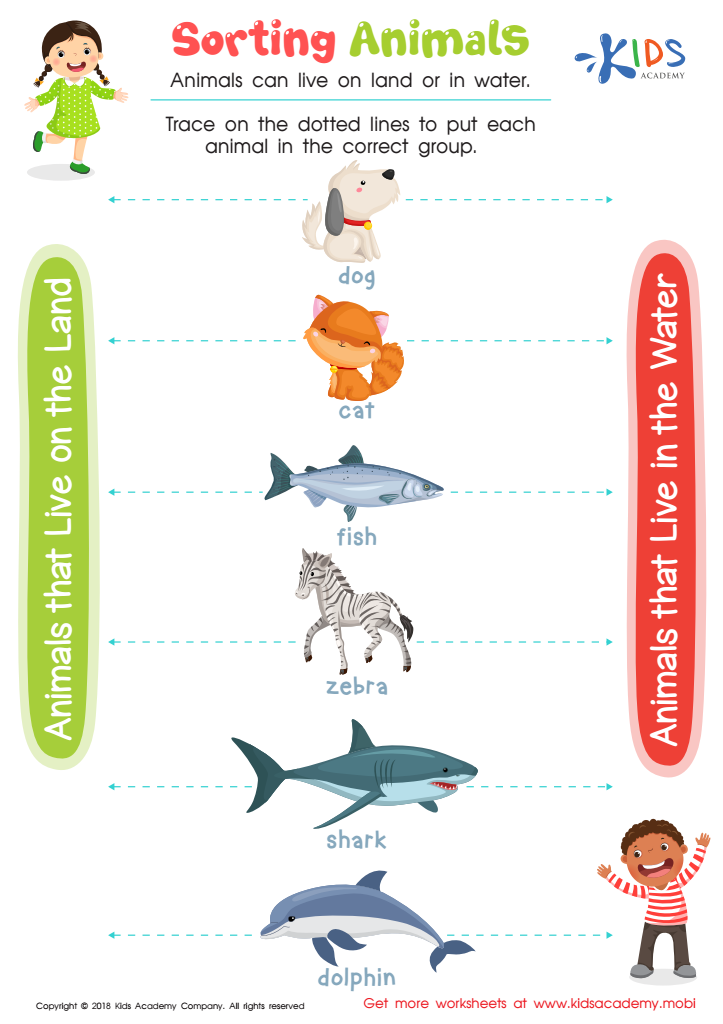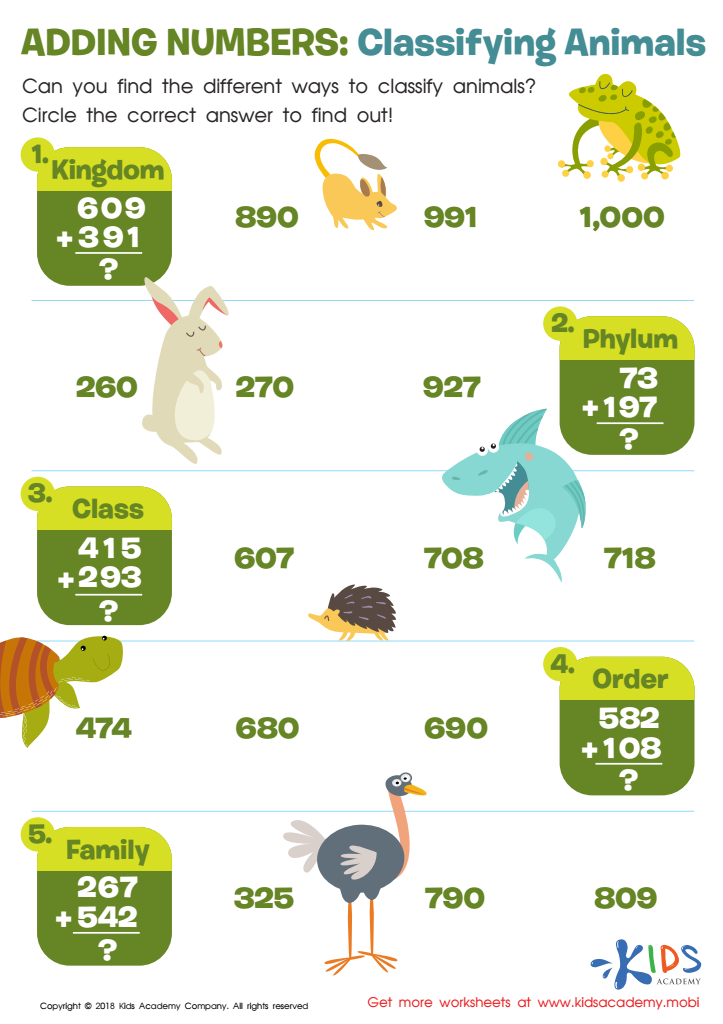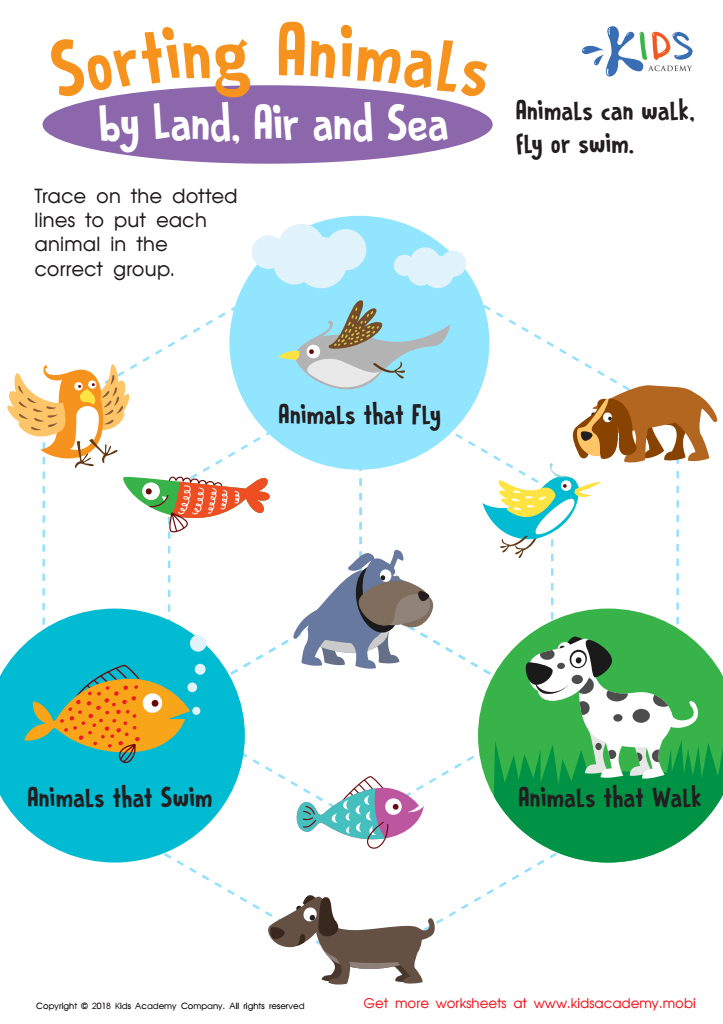Animal Classification Math Worksheets for Ages 6-9
3 filtered results
-
From - To
Discover engaging Animal Classification Math Worksheets designed specifically for children ages 6-9! These interactive printable activities seamlessly blend math skills with the exciting world of animals, helping young learners develop critical thinking while enhancing their understanding of classifications such as mammals, birds, reptiles, and more. Each worksheet encourages kids to practice core math concepts like counting, sorting, and pattern recognition, all while exploring fascinating animal facts. Perfect for home or classroom use, these worksheets promote both cognitive development and a love of wildlife. Make learning fun and effective with our thoughtfully designed resources tailored to early learners!


Sorting Animals Worksheet


Adding Numbers: Classifying Animals Worksheet


Sorting Animals by Land, Air and Sea Worksheet
Animal classification math is an engaging educational approach that merges science and mathematics, fostering an interactive learning environment for children aged 6-9. Understanding animal classification—such as mammals, reptiles, birds, and amphibians—encourages curiosity about the natural world, promoting critical thinking skills.
By integrating math with animal classification, children learn to sort and categorize animals based on various attributes such as size, habitat, and diet. This process not only stimulates mathematical skills like counting, pattern recognition, and data analysis but also helps children grasp concepts of organization and series. For parents and teachers, this interdisciplinary method is invaluable in promoting a holistic educational experience.
Additionally, animal classification math tailored to this age group caters to varied learning styles. It makes learning approachable and enjoyable by incorporating hands-on activities like creating charts or engaging in games that reinforce these concepts. As children collaborate with their peers, they develop social skills while gaining confidence in their problem-solving abilities.
In essence, animal classification math provides a rich foundation for lifelong learning and curiosity about the environment—encouraging children to become thoughtful, informed individuals who appreciate the world around them. Investing in this type of learning can lead to a more flexible and adaptable mindset.
 Assign to My Students
Assign to My Students





















